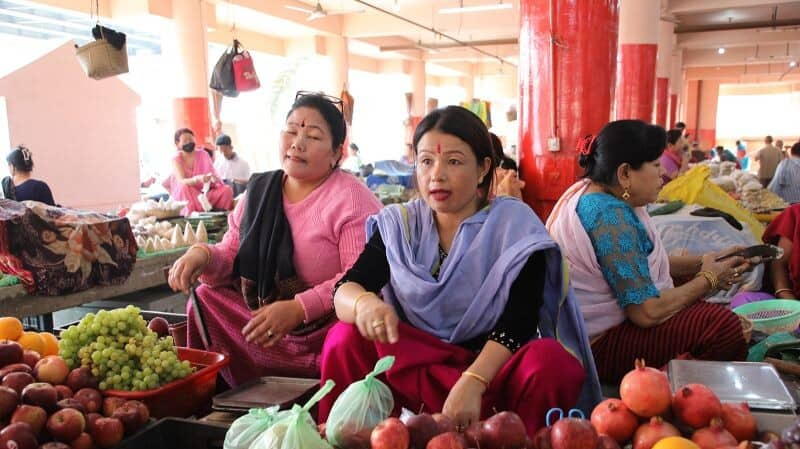
World's largest women-run market is in India; guess where?
What's the story
Ima Keithel, which translates to "mother's market," in Imphal, Manipur, is believed to be the world's largest market run by some 3,000 "Imas" or mothers. According to custom, only married women can officially trade in the market. To earn a place in the official area, a woman must be nominated by a retiring vendor, who chooses a successor she is related to, such as a sister, daughter, or cousin.
Creation
Ima Keithel dates back to the 16th century
Ima Keithel was established in the 16th century during the Kangleipak Kingdom as a temporary, open-air market for the bartering of commodities. In 1533, conscription was made mandatory to reinforce the kingdom's military efforts against the neighboring Burmese and Chinese. As such, all men were taught as warriors from an early age to guard the kingdom's borders, which run along the border with Myanmar. It was then that the city was left for the women to administer.
Market dynamics
Ima Keithel: A symbol of matriarchy and heritage
While men are allowed inside as customers, porters or to serve the women tea, they are strictly prohibited from becoming vendors. The market's patron deity is Ima Imoinu or Ahongbi, the goddess of wealth and business. A festival honoring the goddess 'Imoinu Ahongbi' is also held annually on the 12th lunar day of the Meitei calendar's Wakching month. During the festival, people offer rice, vegetables, fish, Aallago Attu, and fruits to the goddess.
Social impact
Ima Keithel: A hub for community organizing and activism
Beyond their contribution to commerce and trade, the imas of Ima Keithel have also played an important part in Manipur's social and political activities. In 1891, women vendors successfully protested against British colonial reforms favoring external trade. Again in 1939, these women confronted the British army over a policy exporting local rice to other parts of India, resulting in what is now known as the "Second Women's War."
Cultural representation
Ima Keithel: A microcosm of Manipur's egalitarian society
Nowadays, the marget represents a microcosm of Manipur's egalitarian culture. The state boasts one of the highest female literacy rates in India, and it is regarded as a pioneer in gender equality throughout the country. While the local Meitei ethnic group makes up the large majority of Manipur's people, the market also includes Hindi women and representatives from the state's 33 indigenous groups.
Ethnic violence
Ethnic conflict affects businesses
However, the ethnic violence that erupted on May 3 has had a significant impact on businesses and entrepreneurs, small and large alike. Rural Manipur experienced the highest retail inflation in India, reaching 10% in July 2024. Manipur is home to several communities and tribal groups, including the Meitei, Nagas, and Kuki. The dominant Meitei community is primarily Hindu and lives in the Imphal Valley, whilst the Naga and Kuki tribes, who are predominantly Christian, live in the hills.